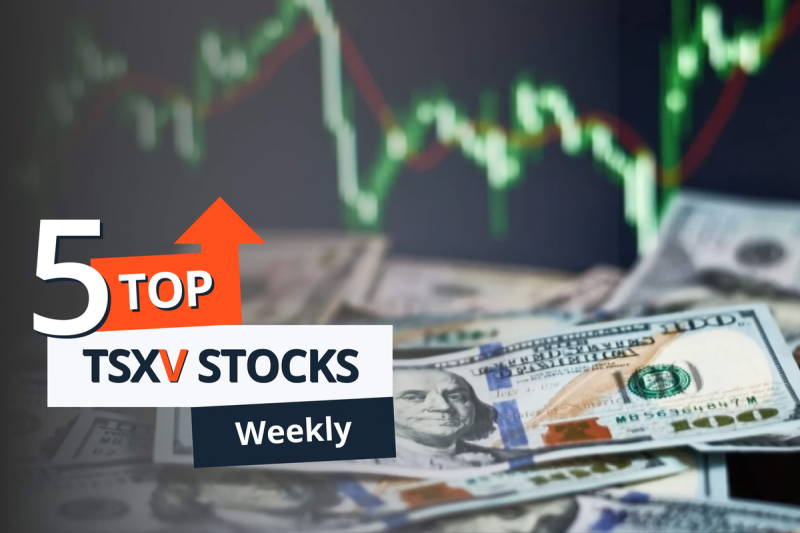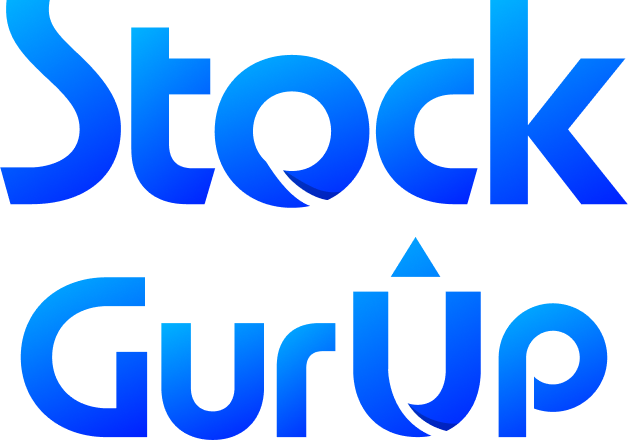
Top 5 Canadian Mining Stocks This Week: Clean Air Metals Soar on 85 Percent Gain
The S&P/TSX Venture Composite Index (INDEXTSI:JX) gained 35.21 points this week to close at 580.43. Meanwhile, the S&P/TSX Composite Index (INDEXTSI:OSPTX) was up 787.22 points to finish the week at 23,568.65.
The US Bureau of Labor Statistics released its final two inflation reports ahead of the next meeting of the Federal Open Market Committee on September 17 and 18. The central bank is widely expected to make a 25 basis cut to its key policy rate, however, there has been some speculation it is considering a larger 50 point cut as inflation eases and it seeks to normalize the economy.
First, on Wednesday (September 11), the Bureau detailed its consumer price index (CPI) for August. In the release, it indicated that all items inflation increased 0.2 percent on a monthly basis and 2.5 percent year-on-year. The 12 month increase was the lowest, February 2021 when it increased by 1.7 percent. It’s also an indicator that inflation is edging closer to the Fed’s 2 percent target rate.
The Bureau followed up on Thursday (September 12) with the release of producer price index (PPI) data for August. It showed a monthly increase of 0.2 percent in final demand owed to a 0.4 percent increase in services, which had declined 0.3 percent in July. On a 12 month basis, the PPI saw a 1.7 percent gain in August.
Across the Atlantic, the European Central Bank made a 0.25 percent cut to its benchmark rate Thursday, the second of the year, as inflation there also tracks closer to the bank’s 2 percent target. Much like the US Federal Reserve, the ECB is taking a data-based approach in setting its policy, offering little insight into future decisions and making decisions on a meeting-by-meeting basis.
The combined news caused the price of gold to soar toward the US$2,600 mark, trading at US$2,580.76 at 4:00 p.m. EDT on Friday (September 13). Silver also saw strong gains, breaching the US$30 mark for the first time since July 18, to end the day at US$30.74. More broadly, commodities saw gains with the S&P GSCI (INDEXSP:SPGSCI) gaining 1.61 percent on the week to close Friday at US$519.09
Equity markets, which largely fell off following Wednesday’s CPI release, also saw broad gains at the end of the week, with the S&P 500 (INDEXSP:INX) gaining 3.4 percent to close at 5,626.01, the Nasdaq 100 (INDEXNASDAQ:NDX) jumping 5.04 percent to 19,514 and the Dow Jones Industrial Average (INDEXDJX:.DJI) increasing 2.07 percent to 41,393.77.
How has this week’s news impacted Canadian resource stocks? Here are the top 5 gainers on the TSX and TSX Venture Exchange.
1. Clean Air Metals (TSXV:AIR)
Weekly gain: 87.5 percent; market cap: C$15.06 million; share price: C$0.075
Clean Air Metals is a junior platinum group elements (PGE) exploration company focused on its 100 percent owned Thunder Bay North critical minerals project.
The site lies within a region that hosts several mining operations including the Lac Des Iles mine owned by Impala Platinum Holdings (OTCQX:IMPUF,JSE:IMP) and the Eagle mine owned by Lundin Mining (TSX:LUN,OTC Pink:LUNMF).
Shares in Clean Air saw gains this week after it provided an exploration update on Tuesday (September 10) from Thunder Bay North. In the announcement it said it had received assay results from the first two holes of its summer drilling program.
The company provided highlighted intercept of 4.92 grams per metric ton (g/t) platinum, 4.66 g/t palladium, 1.07 percent copper and 0.55 percent niobium over 51.79 meters, including 25.82 g/t platinum, 24.5 g/t palladium, 6.94 percent copper and 3.87 percent niobium over 0.97 meters.
2. Orosur Mining (TSXV:OMI)
Weekly gain: 66.67 percent; market cap: C$15.42 million; share price: C$0.075
Orosur Mining is an exploration company focused on the development of early to advanced-stage assets in South America.
Its flagship Anzá gold project in Colombia is a 49/51 joint venture with Minera Monte Aguila (MMA), a corporation owned equally by Newmont (TSX:NGT,NYSE:NEM) and Agnico Eagle Mines (TSX:AEM,NYSE:AEM).
MMA is currently the operator of Anzá. Exploration has revealed multiple gold deposits at the site, which is located 50 kilometers west of Medellin and sits along Colombia’s primary gold belt.
Orosur also owns several early-stage projects, the El Pantano gold-silver project in Argentina, the Lithium West project in Nigeria and the Ariquemes project in Brazil, which is prospective for tin, niobium and rare earths.
Shares in Orosur gained this week following an announcement on Tuesday (September 10) that the company had completed negotiations for the binding share purchase agreement of the Anza gold project originally announced in March. Once completed, Orosur will once again own a 100 percent share of the project.
Under the amended terms of the agreement, MMA will receive a 1.5 percent net smelter royalty, plus a fixed royalty of US$75 per ounce of gold or gold equivalent of the first 200,000 ounces produced.
3. Q2 Metals (TSXV:QTWO)
Weekly gain: 54.84 percent; market cap: C$99.51 million; share price: C$0.72
Q2 Metals is a gold and lithium exploration company with operations in the Eeyou Istchee James Bay region of Québec, Canada, as well as in Queensland, Australia.
Its flagship asset is the Mia lithium property in Québec, which consists of 171 mineral claims. Exploration at the site began in 2023, with surface mapping taking place in June and its inaugural drill program commencing in October. In addition to Mia, the company also owns the Stellar Lithium property 6 kilometers north of Mia, which consists of 77 claims covering 3,972 hectares.
The company’s lone Australian asset is the Big Hill gold project, which comprises several historic mines including Big Hill, Queenslander, Monte Cristo and Sultan, and Taylor.
Shares in Q2 saw gains this week after the company provided visual results from the three holes drilled for its summer drill program at the Cisco lithium project. In the announcement, Q2 said it had encountered the longest continuous spodumene-pegmatite interval produced on site at 347.1 meters.
4. Western Resources (TSX:WRX)
Weekly gain: 55.56 percent; market cap: C$28.62 million; share price: C$0.07
Western Resources is a potash exploration and development company working to advance its flagship Milestone project.
Located 35 kilometers south of Regina, Saskatchewan, Canada, Milestone is situated on 84,557 acres of Crown held mineral leases and 65,305 acres of freehold leases. To date the company has completed 11 exploration wells on the property along with 2D and 3D seismic studies.
According to a November 2021 NI 43-101 report, proven reserves stood at 11.7 million metric tons with an average grade of 32.4 percent potassium chloride (KCI), with probable reserves of an additional 19.5 million metric tons at an average grade of 33.5 percent KCI.
In the company’s most recent management discussion and analysis released on August 14, it detailed the progress of the progress, indicating construction of the first phase of the project was completed in August 2023 and entered into the operational readiness stage in September 2023, with first trial production commencing in November and December 2023.
The second trial production ran from March to early May 2024 after which operations were suspended on site to focus on obtaining additional project financing.
Western Resources saw gains this past week but hasn’t released further updates on financing for the Milestone project.
5. Magna Mining (TSXV:NICU)
Weekly gain: 50 percent; market cap: C$156.04 million; share price: C$1.20
Magna Mining is a mineral exploration and development company focused on advancing its Crean Hill nickel-copper-PGE project and Shakespeare nickel project in Canada. Both Crean Hill and Shakespeare are brownfield projects located near Sudbury, Ontario, that have seen historic mining operations.
The more advanced 255.9 hectare Crean Hill project has seen extensive exploration and development work during the first six months of the year, and signed a milling agreement with Glencore (OTC Pink:GLCNF, LSE:GLEN) June 4 for a surface bulk sampling program. The company expects work on the sampling program to be completed during the second half of the year.
Shakespeare is composed of 29 patented and 787 mining claims covering an area of 18,074 hectares. The site hosts a past-producing mine and has permits in place for a 4,500 metric ton per day mine, mill and tailings storage.
Shares in Magna saw gains this week following an announcement on Thursday that it entered into a definitive share purchase agreement with KGHM International a subsidiary of KGHM Polska Miedź (OTC Pink:KGHPF) subsidiary to acquire the producing McCreedy West copper mine, the past producing Levack mine, Podolsky mine and Kirkwood mine along with controlling stakes in several exploration properties in the Sudbury Basin.
FAQs for TSXV stocks
What is the difference between the TSX and TSXV?
The TSX, or Toronto Stock Exchange, is used by senior companies with larger market caps, while the TSXV, or TSX Venture Exchange, is used by smaller-cap companies. Companies listed on the TSXV can graduate to the senior exchange.
How many companies are listed on the TSXV?
As of June 2024, there were 1,630 companies listed on the TSXV, 925 of which were mining companies. Comparatively, the TSX was home to 1,806 companies, with 188 of those being mining companies.
Together the TSX and TSXV host around 40 percent of the world’s public mining companies.
How much does it cost to list on the TSXV?
There are a variety of different fees that companies must pay to list on the TSXV, and according to the exchange, they can vary based on the transaction’s nature and complexity. The listing fee alone will most likely cost between C$10,000 to C$70,000. Accounting and auditing fees could rack up between C$25,000 and C$100,000, while legal fees are expected to be over C$75,000 and an underwriters’ commission may hit up to 12 percent.
The exchange lists a handful of other fees and expenses companies can expect, including but not limited to security commission and transfer agency fees, investor relations costs and director and officer liability insurance.
These are all just for the initial listing, of course. There are ongoing expenses once companies are trading, such as sustaining fees and additional listing fees, plus the costs associated with filing regular reports.
How do you trade on the TSXV?
Investors can trade on the TSXV the way they would trade stocks on any exchange. This means they can use a stock broker or an individual investment account to buy and sell shares of TSXV-listed companies during the exchange’s trading hours.
Data for this 5 Top Canadian Mining Stocks article was retrieved at 1:00 p.m PST on September 6, 2024, using TradingView’s stock screener. Only companies trading on the TSX and TSXV with market capitalizations greater than C$10 million are included. Companies within the non-energy minerals and energy minerals sectors were considered.
Article by Dean Belder; FAQs by Lauren Kelly.
Securities Disclosure: I, Dean Belder, hold no direct investment interest in any company mentioned in this article.
Securities Disclosure: I, Lauren Kelly, hold no direct investment interest in any company mentioned in this article.
